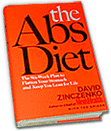First, let me say that everything is ok in moderation. But anything in excess can be bad for you. I'm not trying to make anyone feel bad, or take away any thunder of enthusiasm everyone on this diet has going. That's the last thing I want to do, but its better to know now, than to find out later.
Soy is could be nature's perfect ingredient. Its a vegetable that has a lot of protein, and it has just the right balance of protein to carbs. It tastes good, can be eaten raw, cooked, dried, fermented...heck you can even make soy milk with it. We have made it the posterboy of healthy nutrition. So now what's so bad about it? Soy isoflavones found in soy beans are nearly identical in chemical structure to human estrogen. That is really bad news. One of the primary reasons why women generally have a higher body fat percentage then men is because women have produce more estrogen than men (they also produce less testosterone.) Estrogen promotes storage of fat. Since soy isoflavones are so similar in chemical structure to estrogen, they posess estogen like activity. They will bind to estrogen receptors.
You don't have to worry about having some tofu in your soup, but when you are having soy protein powder, eating some soy cereal, and having some soy milk, you are definitely having excess amounts of soy, which might as well be excess amounts of estrogen in your body.
I know this because I am lactose intolerant. I'm at the far end of the spectrum where it can affect me to where my body treats it like a mild case of food poisoning. Here are tips I learned from my experience.
Like any latose intolerant person, I know that sometimes, we are able to handle some dairy, while other times, it could just be an awful experience. Also, I have experienced an affect where if you ate a small amount of dairy on a daily basis, our lactose intolerance could be pretty well controlled. This is because some dairy products have less or almost no lactose (skim milk, aged cheeses), or even though they have lactose there are things in there that help in breaking down of lactose (yogurt). Even if our latase enzyme producing mechanisms have been taking a break for who knows how long, it shouldn't be that hard to condition them to where you are able to drink at least low fat milk 1% without a problem.
If you don't want to go through that, there's always Lactaid and Lactaid milk. Only draw back is that its pretty damn expensive in comparison to milk (might cost the same as soy milk though not sure), and when you finally have some dairy w/o Lactaid after getting used to Lactaid, its not a fun experience since your latase producing mechanisms are pretty much in hibernation mode.
Conclusion. Avoid excess soy and curb your lactose intolerance.

